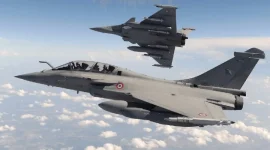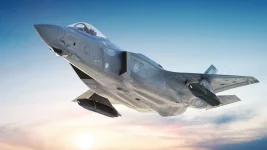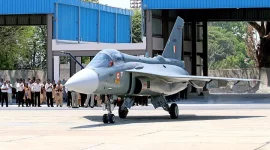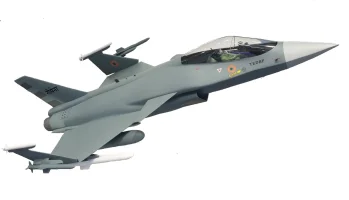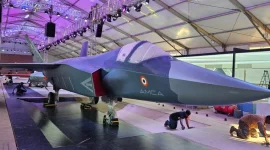- Views: 185
- Replies: 21
Fifteen months after its official establishment, the Indian Army's first squadron of Apache attack helicopters remains grounded, creating a significant gap in the nation's combat readiness along its western border.
The 451 Aviation Squadron, raised in March 2024 at Jodhpur, is yet to receive a single one of the six AH-64E Apache helicopters ordered from American aerospace giant Boeing, with the delivery now delayed indefinitely.
The original agreement, a deal worth approximately $600 million signed in February 2020, was intended to significantly enhance the Army’s aerial firepower.
However, a series of setbacks has pushed the delivery timeline from the initial deadline of mid-2024 to potentially the latter half of 2025, raising serious concerns about operational preparedness and contractual oversight.
A State-of-the-Art Combat Platform
The AH-64E Apache is widely regarded as the world's most advanced multi-role combat helicopter. It is equipped with a formidable arsenal, including the Longbow Fire Control Radar for precise targeting, AGM-114 Hellfire anti-tank missiles, Hydra-70 rockets, and a 30mm chain gun.The models ordered for India have been specifically customised with advanced electronic warfare suites and enhanced rotor blades to ensure peak performance in the subcontinent's challenging high-altitude and desert terrains.
This order for six helicopters was meant to complement the 22 Apaches already in service with the Indian Air Force (IAF), which were inducted between 2019 and 2021.
The Army's squadron is slated for deployment in the desert sector to provide crucial offensive support against armoured threats, a strategic priority following recent military operations.
Pilots and ground crews for the Jodhpur-based squadron have already completed their specialised training in the United States and are awaiting the arrival of their aircraft.
A Timeline of Shifting Deadlines
Under the 2020 contract, the first three Apaches were scheduled to arrive by June 2024, with the remainder due by July 2024. Boeing first revised this schedule to December 2024, citing global supply chain disruptions. That deadline has also passed with no deliveries made.Sources within the Ministry of Defence indicate that the current hold-up is due to significant technical and safety concerns. Boeing has reportedly paused all AH-64E deliveries after issues with electrical power generators were identified, which could potentially lead to smoke accumulation in the cockpit.
This decision follows recent crashes involving U.S. Army Apaches, where subsequent investigations pointed to mechanical failures as a contributing cause.
The process was also initially hindered by India's lower priority status in the U.S. Defense Priorities and Allocations Systems Program (DPAS), a system that determines the allocation of critical military components.
While this was resolved through diplomatic channels in mid-2024, the technical issues at the manufacturer's end continue to stall the delivery. Current estimates suggest the first helicopters may not arrive before July 2025.
Impact on Military Readiness and Accountability
The extensive delay has left the highly-trained 451 Aviation Squadron non-operational, impacting both morale and skill retention.This creates a critical capability void on the western front, as the helicopters were expected to work in close coordination with ground troops—a role that the IAF's Apaches, configured for different missions, cannot fully replace.
The situation highlights a significant contractual loophole, as the deal reportedly does not include a penalty clause for delivery delays. This lack of contractual leverage limits India's ability to hold the manufacturer accountable and expedite the process.
Observers note that this absence of penalties in high-value defence deals is a point of major concern, placing the burden of delays squarely on the buyer.
While ensuring the aircraft's safety is paramount, the prolonged delay underscores challenges in international defence procurement and strengthens the case for India's 'Aatmanirbhar Bharat' (Self-Reliant India) initiative in developing indigenous defence platforms.

